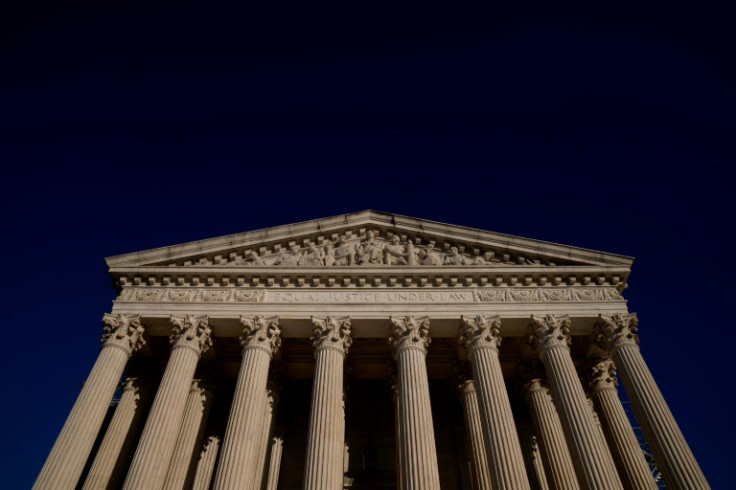Supreme Court Orders Louisiana To Use Map With Two Majority-Black Districts For Election

The Supreme Court on Wednesday ordered Louisiana to hold its 2024 congressional elections using a House map that includes two majority-Black districts.
The decision came despite a lower-court ruling that had previously declared the map an "illegal racial gerrymander." About one-third of Louisiana's population is Black.
The new map will now feature two majority-Black districts out of six, a change that could potentially enhance the Democratic Party's chances of gaining control of the narrowly divided House of Representatives in the upcoming elections.
Republicans had won five of the six districts in the 2022 elections using the Legislature's original map.
The Supreme Court order came after emergency requests from an unusual coalition of Republican state officials and civil rights groups. Despite their typically opposing interests, the two groups united in urging the high court to block a lower court ruling that had invalidated the most recently drawn map.
State officials argued that a finalized Louisiana map was necessary by Wednesday to meet bureaucratic deadlines and prevent "disarray" in the electoral process.
The Supreme Court's order did not address the lower court's finding that the map relied excessively on race. It may decide at a later date to hear arguments on it.
The court's three liberal justices expressed strong objections and dissented from the decision.
Justice Ketanji Brown Jackson said that the state had sufficient time to draw a new map that would address the legal concerns raised, and added that implementing a new map well ahead of the November election posed a minimal risk of voter confusion.
The liberal justices have consistently objected to the court's interventions in election-related cases, particularly when these actions have appeared to favor Republican interests.
However, the order was passed because the Supreme Court has a 6-3 conservative majority. The conservative judges did not explain in detail their reasoning in Wednesday's decision.
Louisiana's Attorney General Liz Murrill welcomed the order, saying, "The Secretary of State has consistently stated she needed a map by May 15."
"The plaintiffs did not contest it at trial. We will continue to defend the law and are grateful the Supreme Court granted the stay which will ensure we have a stable election season," Murrill added.
Jared Evans, a lawyer for the Black voters, praised the court's action. "We are very relieved that SCOTUS agreed with us that it's too close to the election to insert uncertainty," he said, adding, "We will have a map with 2 majority black districts this fall."
Edward Greim and Paul Hurd, attorneys representing the plaintiffs challenging Louisiana's new congressional map, criticized the Supreme Court's order, stating it permits the state to enforce a "brutal racial gerrymander" on voters in the 2024 elections.
© Copyright IBTimes 2024. All rights reserved.




















